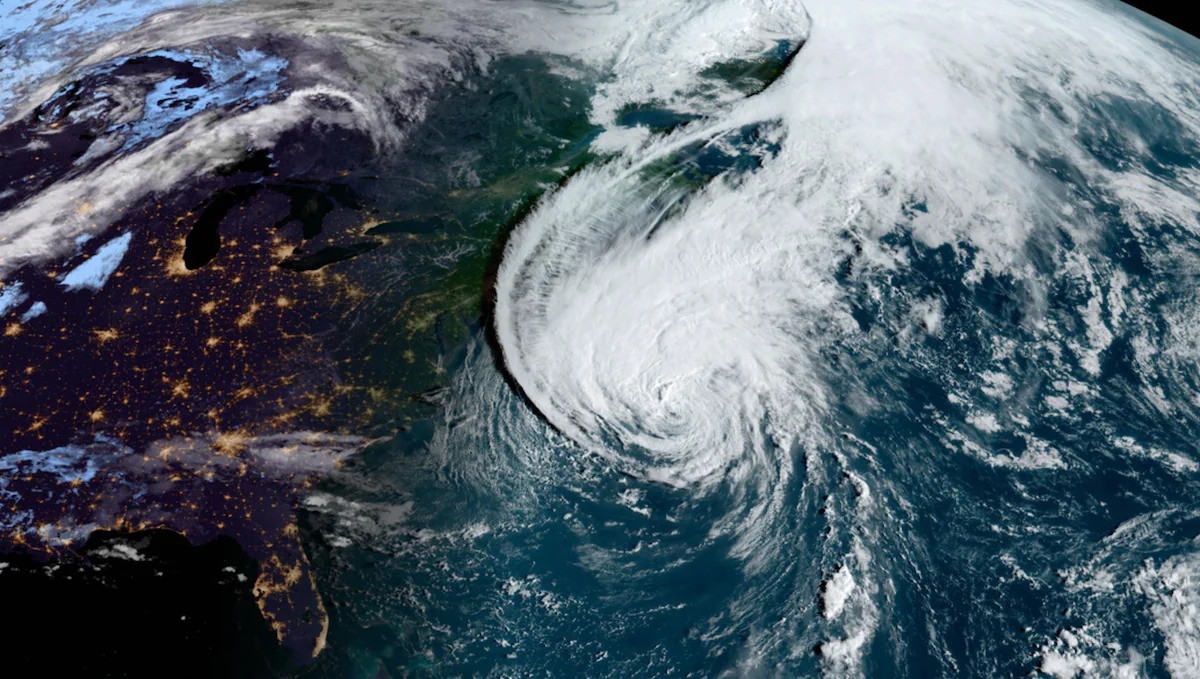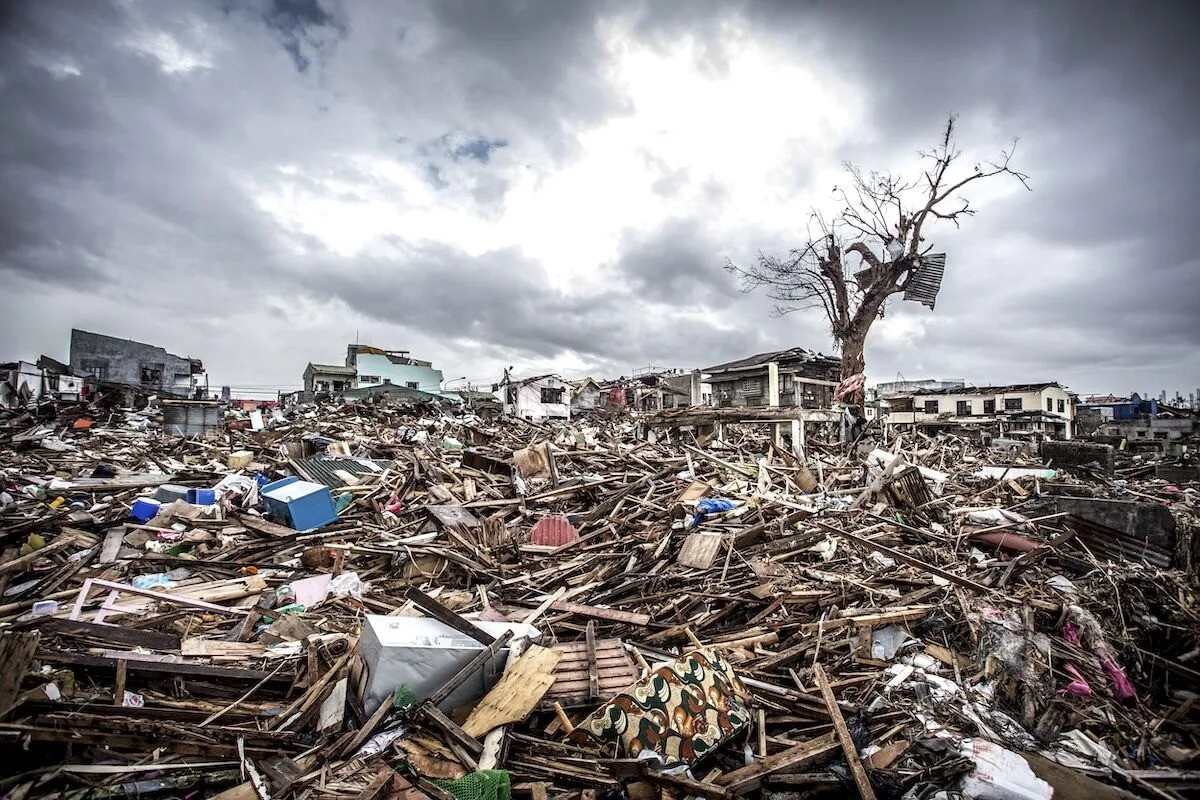Scientists Propose New Hurricane Category Due To Climate Change Intensity
Scientists propose new hurricane category due to climate change intensity. A recent study suggests that the intensity of hurricanes, exacerbated by the climate crisis, warrants an expansion of the traditional classification system to include a "category 6" designation.
Author:Daniel JamesReviewer:Karan EmeryFeb 07, 20241.9K Shares44.3K Views

Scientists propose new hurricane category due to climate change intensity. A recent study suggests that the intensity of hurricanes, exacerbated by the climate crisis, warrants an expansion of the traditional classification system to include a "category 6" designation. This updated scale would extend beyond the current 1 to 5 ranking, accommodating storms with sustained winds exceeding 192mph.
Researchers note that over the past decade, at least five storms would have met the criteria for this new classification. The increased frequency of these mega-hurricanes is attributed to global heating, which leads to elevated ocean and atmospheric temperatures.
Michael Wehner, a scientist at the Lawrence Berkeley National Laboratory in the US, said that "192mph is probably faster than most Ferraris, it's hard to even imagine." He has proposed the new category 6 alongside another researcher, James Kossin of the University of Wisconsin-Madison. "Being caught in that sort of hurricane would be bad. Very bad."
Published in the Proceedings of the National Academy of Sciences, a new study proposes an extension to the established Saffir-Simpson hurricane scale, originally devised in the early 1970s by civil engineer Herbert Saffir and meteorologist Robert Simpson, then director of the US National Hurricane Center.
The current scale categorizes hurricanes based on sustained maximum wind speeds, starting from 74mph for a category 1 event, with intensity increasing with wind speed. Category 3 and above are labeled as major hurricanes, posing significant threats to life and property, with category 5 encompassing storms with speeds of 157mph or more.
While category 5 storms like Hurricane Katrina in 2005 and Hurricane Maria in 2017 have inflicted substantial damage, the study argues for the recognition of an even more extreme category. Examples cited include Typhoon Haiyan, which claimed over 6,000 lives in the Philippines in 2013, and Hurricane Patricia, which reached a staggering top speed of 215mph near Mexico in 2015.
“„There haven't been any in the Atlantic or the Gulf of Mexico yet but they have conditions conducive to a category 6, it's just luck that there hasn’t been one yet. I hope it won’t happen, but it's just a roll of the dice. We know that these storms have already gotten more intense and will continue to do so.- Michael Wehner
Despite the climate crisis, the overall number of hurricanes has remained relatively stable, but satellite records show a significant increase in the intensity of major storms over the past 40 years. Hurricanes have more fuel to intensify quickly thanks to the warming of the ocean and rising temperatures. Coupled with a warmer, moisture-laden atmosphere, these conditions contribute to the heightened intensity of storms.
According to Wehner, the traditional Saffir-Simpson scale provides an incomplete assessment of the hazards posed by hurricanes, as the greatest threats often stem from severe rainfall and coastal flooding rather than the sheer strength of the winds. However, the proposal for a category 6 designation aims to underscore the amplified risks exacerbated by the climate crisis. "Our main purpose is to raise awareness that climate change is affecting the most intense storms," he emphasized.
The tools we use to monitor our environment have been adapted to keep pace with the swift transformations of the modern age. For instance, Australia's Bureau of Meteorology introduced the color purple to its weather maps to signify extreme heat, reflecting the urgency of climate change. Similarly, the US government's Coral Reef Watch program recently expanded its alert categories to address the escalating heat stress experienced by coral reefs.
Conclusion
Despite these adjustments, there is currently no indication of hurricanes being officially classified as category 6. Requests for comment from the US National Hurricane Center regarding the new study went unanswered.
Jump to

Daniel James
Author
Daniel James is a distinguished gerontologist, author, and professional coach known for his expertise in health and aging.
With degrees from Georgia Tech and UCLA, including a diploma in gerontology from the University of Boston, Daniel brings over 15 years of experience to his work.
His credentials also include a Professional Coaching Certification, enhancing his credibility in personal development and well-being.
In his free time, Daniel is an avid runner and tennis player, passionate about fitness, wellness, and staying active.
His commitment to improving lives through health education and coaching reflects his passion and dedication in both professional and personal endeavors.

Karan Emery
Reviewer
Karan Emery, an accomplished researcher and leader in health sciences, biotechnology, and pharmaceuticals, brings over two decades of experience to the table. Holding a Ph.D. in Pharmaceutical Sciences from Stanford University, Karan's credentials underscore her authority in the field.
With a track record of groundbreaking research and numerous peer-reviewed publications in prestigious journals, Karan's expertise is widely recognized in the scientific community.
Her writing style is characterized by its clarity and meticulous attention to detail, making complex scientific concepts accessible to a broad audience. Apart from her professional endeavors, Karan enjoys cooking, learning about different cultures and languages, watching documentaries, and visiting historical landmarks.
Committed to advancing knowledge and improving health outcomes, Karan Emery continues to make significant contributions to the fields of health, biotechnology, and pharmaceuticals.
Latest Articles
Popular Articles
